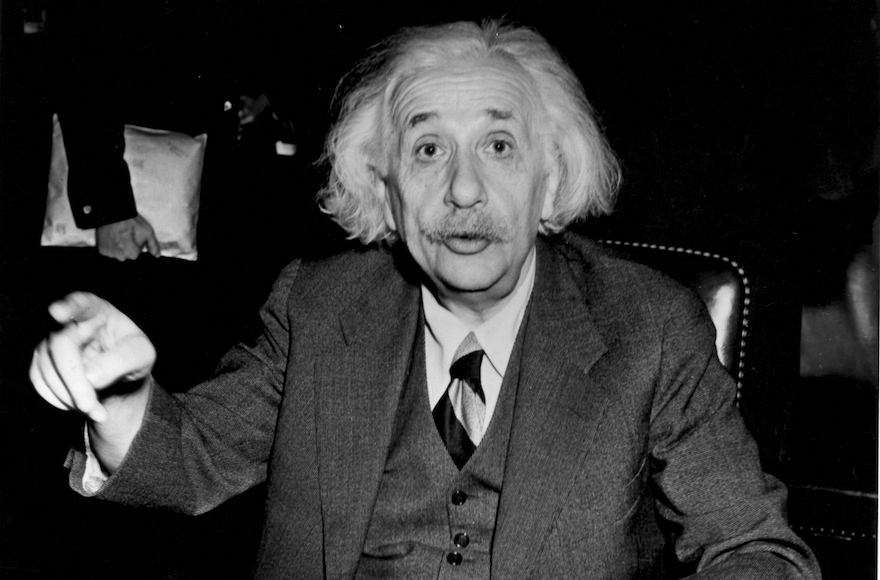(JTA) — Scientists for the first time detected gravitational waves hypothesized by Albert Einstein a century ago, in a landmark discovery that was said to open a new window for studying the cosmos.
The researchers said on Thursday they identified gravitational waves, described as ripples in space and time, coming from two distant black holes that orbited one another and smashed together at high speed to form a single, larger black hole, Reuters reported.
READ: Einstein once kept kosher and 7 other Jewish facts for relativity’s 100th b’day
The waves were unleashed by the collision of the black holes — extraordinarily dense objects whose existence also was foreseen by the Jewish, Germany-born physicist. One of them had 29 times the mass of the sun and the other 36 times the solar mass, located 1.3 billion light years from Earth, the researchers said.
“We have detected gravitational waves. We did it,” said California Institute of Technology physicist David Reitze, triggering applause at a packed news conference in Washington, DC. Louisiana State University physicist Gabriela Gonzale hailed the discovery during the conference as opening a new era in astronomy.
The scientific milestone was achieved using a pair of giant laser detectors in the United States, located in Louisiana and Washington state, capping a decades-long quest to find these waves. The scientists first detected the waves last Sept. 14.
The two instruments detected remarkably small vibrations from the gravitational waves as they passed through the Earth. The scientists converted the wave signal into audio waves and listened to the sounds of the black holes merging. At the news conference, they played an audio recording of this: a low rumbling pierced by chirps.
Einstein in 1916 proposed the existence of gravitational waves as an outgrowth of his groundbreaking general theory of relativity, which depicted gravity as a distortion of space and time triggered by the presence of matter.
Phrases containing Einstein’s name, including #EinsteinWasRight, featured in the list of most popular Twitter hashtags in several European countries and also in Germany — which Einstein left in 1933 because of the rise to power of Adolf Hitler and the Nazi party.






